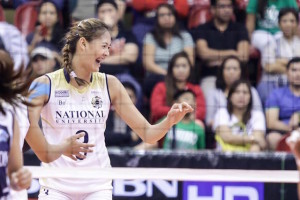HONOLULU, Hawaii—The 7th International Conference on Sport and Society I attended here has lived up to expectations and touched on subjects we may not even concern ourselves with yet fully in the Philippines.
Close to 150 participants from 70 countries representing the academe and sports profession gathered in the conference to tackle sensitive as well as popular issues that sports impact on.
Two talks stood out and had a connection with the Philippine sporting scene. Both talks were from plenary speakers or a resource person invited by the conference to set the tone of the discussions.
First, was Diana Bertsch, vice president of World Championship Events that organizes the popular Ironman 70.3 triathlon races. Instead of simply delving on how well the swim, bike and run event is run, Bertsch opted to discuss how her organization and close to 5,000 volunteers help to preserve and care for the Hawaiian environment.
The care begins with a collective pledge for the islands and Hawaiian culture. This means teaming up with private sector organizations in managing the huge waste of bottles, food and other human trash that these events produce.
Volunteerism in large sporting events like these and the Olympics is still unchartered territory in the Philippines. Though there are already volunteer teams, many still do not want to help out unless there’s something in it for them outside of genuine service.
Another Filipino participant, Kareem Durano of the University of San Carlos of Cebu, and I listened intently and discussed how this connected to many tourism efforts in the Philippines. Cebu, of course, is a great venue for triathlon events, and can be developed further to attract investors and tourists.
The second speaker with a substantial point was Dr. Jonathan Casper an Associate Professor at North Carolina State University. Casper pointed out that close to 71 percent of Americans follow sport in some form but only 19 percent know important facts about the environment. Instead of complaining about this disparity, it would be better to use the sports involvement as a learning opportunity to show how football, baseball and other games affect the environment.
Filipinos are not much of outdoor sports followers, due to perhaps to our humidity, oppressive heat, wicked rains and typhoons. But this should not prevent environment consciousness at basketball and volleyball games where trash can be substantial and thrown away unwisely.
The conference brought together people who viewed sport beyond the results of games. Even my presentation on the rise of Philippine volleyball stirred interesting talk on the sport’s history, gender and women’s uniforms.
This corner again suggests a similar gathering of Filipino enthusiasts, academics and practitioners so that what ails or impacts Philippine sports can be researched, dissected and discussed. As long as we keep in check our personal politics, alliances and biases, a conference on Philippine sports can open more opportunities for athletes, administrators and followers.


